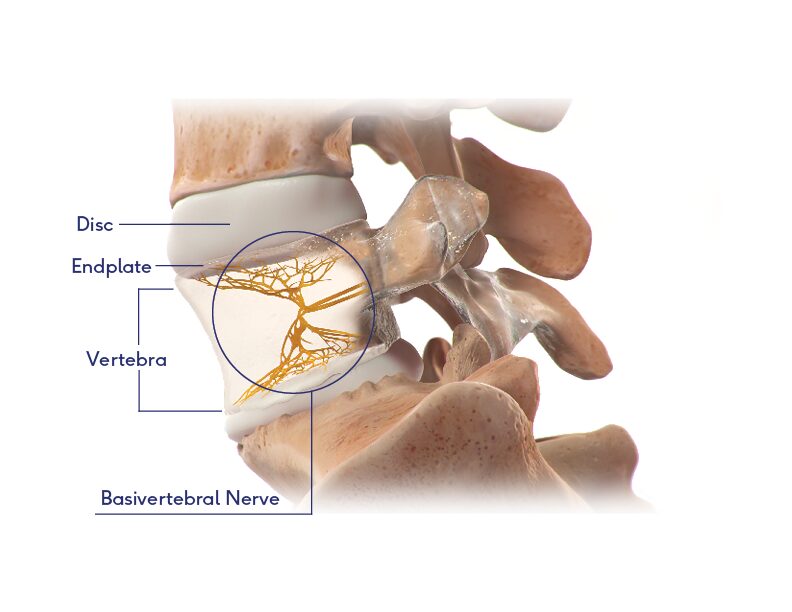The Intracept Procedure for Chronic Low Back Pain
Millions of Americans are affected by low back pain and can be severely limited in everyday activities. Restore offers a new approach to provide relief for patients suffering from chronic low back pain or CLBP (Intracept Procedure).
The new treatment is the Intracept Procedure – a minimally invasive, outpatient procedure which targets a nerve located in the bones of the spine (vertebrae). During the procedure, our pain specialist advances a specialized probe into the vertebrae and uses radiofrequency energy (heat) to disable the nerve, rendering it unable to transmit pain signals. Intracept takes approximately 60-90 minutes and does not involve an implant or change the structure of the spine.

The Intracept Procedure is supported by multiple clinical studies, including two Level I randomized controlled trials and five-year data showing patient outcomes last long-term. Key findings include:
- Statistically significant improvements in function and pain vs sham and standard care1,2
- Improvements post-procedure are durable, lasting more than five years post-treatment3
- Significant decrease in the number of patients using opioids or injections long-term3
- Nearly 80% of patients indicated they would have the procedure again for the same condition3
Risks and Indications
The Intracept Intraosseous Nerve Ablation System is intended to be used in conjunction with radiofrequency (RF) generators for the ablation of basivertebral nerves of the L3 through S1 vertebrae for the relief of chronic low back pain of at least six months duration that has not responded to at least six months of conservative care, and is also accompanied by features consistent with Type 1 or Type 2 Modic changes on an MRI such as inflammation, edema, vertebral endplate changes, disruption and fissuring of the endplate, vascularized fibrous tissues within the adjacent marrow, hypointensive signals (Type 1 Modic change), and changes to the vertebral body marrow including replacement of normal bone marrow by fat, and hyperintensive signals (Type 2 Modic change).
Key Benefits of Intracept
- Provides a treatment option for patients who have not responded to conservative therapy
- Minimally invasive, outpatient procedure
- Implant-free and preserves the structure of the spine
- Provides durable relief of chronic vertebrogenic low back pain
How do I know if the Intracept Procedure Is Right for Me?
- Have you experienced Chronic Low Back Pain of at least 6 months?
- Have you not responded to at least 6 months of conservative care?
Your physician will help determine if the Intracept Procedure may be right for you. Those interested in learning more about the Intracept Procedure can email contact@restoremedicalpartners.com or call (941) 375-3006 for more information.
1Fischgrund J et al., Intraosseous Basivertebral Nerve Ablation for the Treatment of Chronic Low Back Pain: A Prospective Randomized Double-Blind Sham-Controlled Multicenter Study. European Spine Journal. Epub February 8, 2018. https://doi.org/10.1007/s00586-018-5496-1
2Khalil J, Smuck M, Koreckij T, Keel J, Beall D, Goodman B, Kalapos K, Nguyen D, Garfin S. A Prospective, Randomized, Multi-Center Study of Intraosseous Basivertebral Nerve Ablation for the Treatment of Chronic Low Back Pain presented at the American Society of Spine Radiology Annual Symposium; February 22, 2019; Miami, FL.
3Fischgrund JS, Rhyne A, Macadaeg K, Moore G, Kamrava E, Yeung C, et al. Long-term outcomes following intraosseous basivertebral nerve ablation for the treatment of chronic low back pain: 5-year treatment arm results from a prospective randomized double-blind sham-controlled multi-center study. Eur Spine J. epub May 25, 2020. https://doi.org/10.



